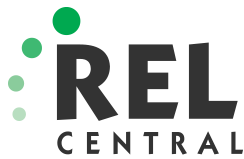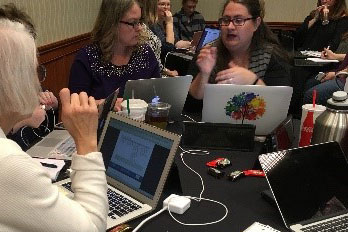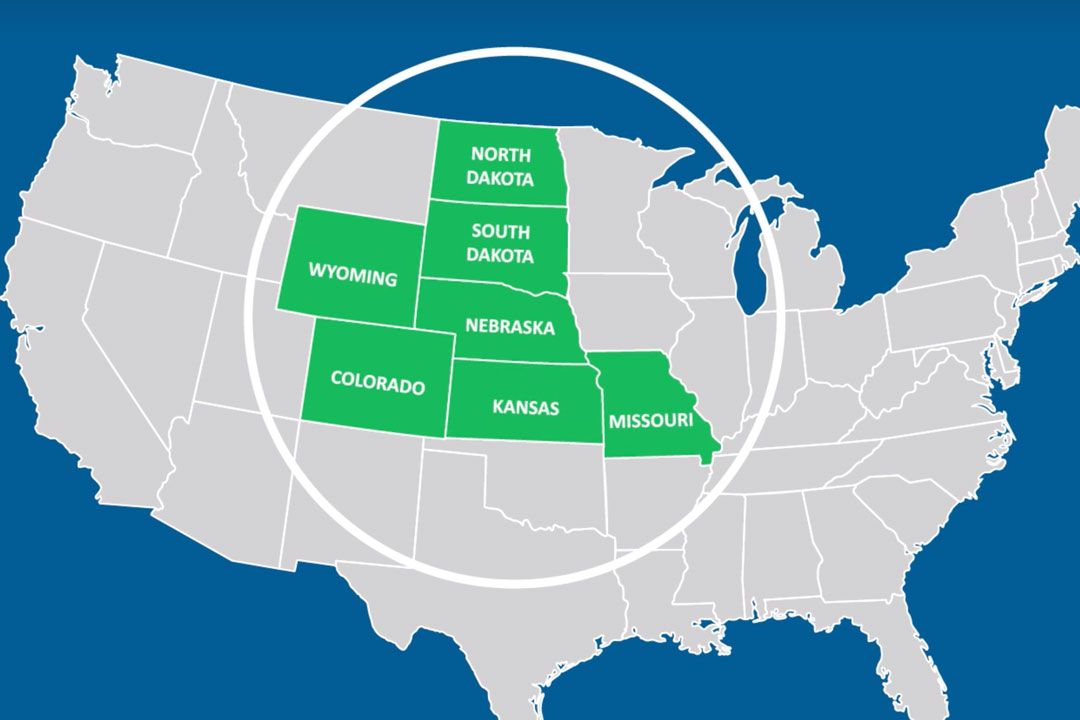The kindergarten period is an important transition point for children as they move from sometimes informal to more formal education settings. Data collected from Kindergarten Formative Assessments (KFAs), also known as readiness assessments, as kindergarteners enter school provide not only information on how well their previous experiences have (or have not) prepared them, but also a baseline measure for assessing future progress. Therefore, the KFA is an important tool for teachers and administrators to collect children’s baseline data.
North Dakota lacked a KFA until joining a consortium of nine other states and three nationally recognized research partners to develop a research-based system for assessing young children’s learning. During the 2017/18 school year, a small group of kindergarten teachers from across North Dakota piloted the new KFA, designed to provide more information to kindergarten teachers on children’s development and learning. To support teachers’ use of the KFA, the North Dakota Department of Public Instruction (NDDPI) partnered with REL Central to provide a series of trainings as part of a project conducted under the Early Childhood Education Research Alliance.
The North Dakota KFA is an observational assessment that covers all of the Essential Domains of School Readiness as defined by the U.S. Department of Education. Educators can use the KFA to obtain data on where children are developmentally in their learning and behavioral growth and where they need to go next. NDDPI surveyed the pilot group of teachers halfway through the KFA pilot to understand what further support they needed to effectively implement the KFA. The teachers indicated that they needed support to understand how best to use the available data and reports provided by the KFA online system.
“When teachers understand children’s development along a progression, research shows that they are better at individualizing instruction to meet each child’s developmental level,” said REL Central Deputy Director Carrie Germeroth, who led the trainings.
REL Central’s series of trainings provided support on understanding KFA objectives for counting and controlling emotions as well as on using the KFA data reports. The first training guided teachers through a discussion of how children develop counting skills. Teachers discussed their students’ progress, noting that students were often at the top level of the KFA counting objective by midyear, and they needed more support on how to further individualize instruction for these students. Teachers then reviewed the What Works Clearinghouse (WWC) practice guide Teaching Math to Young Children, which offers and discusses strategies for supporting object counting in classrooms.
During the second session, teachers explained that their students fell widely across the KFA levels that define expectations for how children manage their emotions, from needing frequent reminders to regulate their emotions to independently using strategies to handle complicated emotional situations. Teachers discussed the WWC practice guide Reducing Behavior Problems in the Elementary School Classroom to better understand how children progress in their skills to manage their emotions and what strategies are available for supporting the development of these skills in their classrooms.
During final training teachers discussed the observational evidence they use to make performance-level decisions—such as if a child is able to point to and verbally count ten objects versus producing ten objects from a larger set—on the KFA counting objective, and the challenges in capturing this information. Germeroth guided teachers through a discussion of the KFA-generated reports. During the discussion, teachers learned about each report’s use, which included everything from sharing data with parents during conferences to a whole classroom snapshot to inform individualized instruction.
As a result of the three sessions, teachers gained a better understanding of KFA objectives and discovered how to better use KFA data. Teachers explained that the KFA progressions offer real benefits, and they hope to expand their use of the KFA in the coming school year.
“As a kindergarten teacher, I feel that this type of formative assessment is best practice. Recording data seemed time consuming at first, but is now a routine,” said Jennifer Bartsch, a Rugby kindergarten teacher. “I have a good idea of where each child needs to be to move on the progression and can use the data to drive my instruction. I am excited to share this data with parents.”





